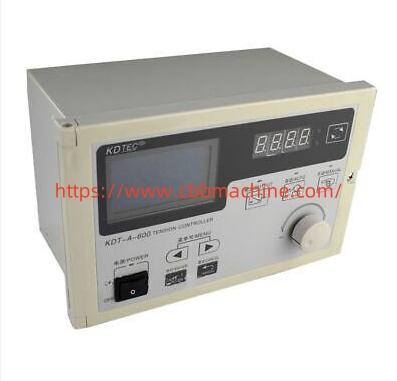Tension Controller Versatility Meeting Diverse Industrial Material Handling Requirements

In modern industrial production, the Tension Controller plays a crucial role in maintaining consistent force on rolls, tapes, or webs during processing. By keeping tension uniform, it prevents wrinkling, tearing, or misalignment, ensuring smooth operation and high-quality output across industries such as textiles, packaging, printing, and film production.
This type of equipment continuously monitors the material and automatically adjusts speed or force in response to variations. Such real-time feedback allows manufacturers to maintain precise control over their production lines. By reducing material waste and improving product consistency, it contributes to both efficiency and cost savings, making it an essential component in modern manufacturing workflows.
Durability and precision are fundamental for optimal performance. High-quality sensors, strong structural components, and robust rollers ensure that the system can operate reliably under repetitive cycles and high-speed conditions. Correct calibration and alignment are equally important, as they allow the device to respond accurately to changes in material tension, preventing defects and operational issues.
Technological integration has further enhanced the capabilities of these devices. Some models include digital interfaces, programmable controls, and real-time data logging, enabling operators to monitor production metrics closely and make adjustments as necessary. These features not only increase accuracy but also improve workflow efficiency and reduce human error in industrial operations.
Safety is another key consideration. Proper tension control minimizes the risk of material snapping or machinery overloads, protecting both operators and equipment. By providing predictable and steady force, these systems contribute to safer working conditions while maintaining high-quality results for sensitive materials.
Versatility is a major advantage. Modern tension devices can accommodate various material types, thicknesses, and roll diameters, allowing manufacturers to switch between products quickly without compromising performance. This adaptability is especially valuable in facilities handling multiple production lines or frequent material changes, saving time and resources.
Energy efficiency is also enhanced through precise tension control. Reducing unnecessary strain on motors and rollers minimizes power consumption while maintaining smooth, reliable operation. Over time, this contributes to lower operational costs and supports environmentally conscious production practices, which are increasingly important in today's industrial landscape.
Selecting the right system requires evaluating material specifications, machine configuration, and the desired range of tension control. Integration with automation systems ensures seamless operation, consistent performance, and maximum benefits from the equipment. Proper selection, installation, and maintenance are key to sustaining productivity and quality in manufacturing environments.
For more information on different types, industrial applications, and selection tips, visit https://www.cbbmachine.com/news/industry-news/tension-controller-types-importance-applications-and-more.html.
- Art
- Causes
- Crafts
- Dance
- Drinks
- Film
- Fitness
- Food
- Giochi
- Gardening
- Health
- Home
- Literature
- Music
- Networking
- Altre informazioni
- Party
- Religion
- Shopping
- Sports
- Theater
- Wellness


